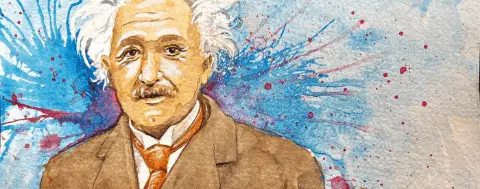
Google’s authorship program, announced in June of 2011, has seen steadily increasing adoption over the past couple years. Basically, authorship markup is used to connect an author, via their Google Plus profile, with content they produce online. Setting up authorship is fairly simple. Here’s the Google help page on how to setup authorship. If you’re using a WordPress site and have multiple authors, here’s a guide on how to integrate authorship for that scenario. Google also provides a tool, called the structured data testing tool, for checking whether your authorship is correctly setup.
Why Use Google Authorship?
Okay, so hopefully you’ve been able to set up Google authorship for your content, but what benefits are there for doing so? The first, and most obvious benefit, is what’s called a rich snippet. Basically a rich snippet is a feature in search that draws visual attention to a particular result. There are a number of rich snippets, some containing extra text, and some actually containing graphical elements such as a star rating.
The Google authorship rich snippet is a photo of the author accompanied by a line of text with the authors name and the number of people who have them in circles. Both the photo, and the accompanying text, have associated links to more content by that author or the author’s Google+ profile. The benefit here being that searchers can easily find more content written by a particular author, which drives more traffic to your content.
We all know intuitively that a more eye catching search result will naturally draw more clicks, but Cyrus Shepard studied the issue to discover that an optimized authorship result could increase clicks as much as 35%. Keep in mind that this study showed that an optimized authorship photo is what improved click through rates so dramatically. Another study found that a Google authorship snippet improved click through rates by as much as 150%.
More Benefits to Authorship
Almost before Google announced its authorship program, in fact well before it, rumors began flying about an author rank factor that would affect search results. Basically the author rank theory, based the Agent Rank patent Google filed back in 2005 (granted in 2009), says that Google intends to rank content based on an individual author’s authority in a subject area. Currently the major ranking factor is based on links, and how many authority links your site gets is a determining factor in search rankings.
While author rank is an interesting theory, the prevailing wisdom is that it is not currently implemented. However many, including leading authorship expert Mark Traphagen, believe that Google intends to implement a kind of author rank at some point. Mark gives a detailed explanation of why he believes Google will implement author rank in this post. An often cited reference for this belief is a quote from Google Chairman Eric Schmidt in his The Digital Age book where he says:
“Within search results, information tied to verified online profiles will be ranked higher than content without such verification, which will result in most users naturally clicking on the top (verified) results. The true cost of remaining anonymous, then, might be irrelevance”
Recent Developments in Authorship
Most recently we’ve seen a reduction in the number of authors who actually see their photo in search results. Last year, at Pubcon in New Orleans, Google’s Matt Cutts mentioned that Google would be reducing authorship by about 15%. Then in December 2013 the authorship community confirmed that the reduction had taken place.
There is a lot of speculation surrounding the reasons why Google chose to reduce its display of authorship results, but Mr. Cutts did say that it was intended to improve quality. Mark Traphagen has been analyzing data, and his initial findings are that it appears to be more related to publishership than authorship. That is to say, the lower quality sites were most likely to see a reduction in authorship.
Another possible reason for this authorship reduction was with authors that weren’t using authorship as Google recommended. Basically, Google recommended that authors only claim authorship for actual content and not an entire page including the homepage or product pages.
Where Do We Go From Here?
Regardless of whether Google has implemented author rank now or not, the activities that would improve your author rank should be engaged now. Those activities that would raise your topical authority are very important. This means writing articles in your area of expertise, and getting those articles in front of other experts in your field.
Similarly to how links currently work, with highly authoritative links conferring more ranking power than others, getting your content shared by authorities on social media like Google+ will help solidify your authority. In the short term people will notice which content is authoritative, sharing it with others. In the longer term Google will get better at understanding author authority, and begin ranking their content higher!
Updates to Authorship Reduction
Mark Traphagen completed an extensive Authorship reduction overview, based on research done in the Google Authorship & Author Rank community on Google+, where he sums up the best information available related to the loss of Google Authorship. In this article Mark identifies the kinds of Authorship that have resulted:
- First Class: No change in Authorship
Full visual result with author photo - Second Class: Authorship displays
No image associated with result - No Authorship visible
These changes in Authorship do not appear specific to the individual author, but rather appear to be associated with the website or domain on which the author is publishing content. The result can be that a single author may see a reduction in the way their snippet appears when writing on one domain, and not see a reduction on another. Add to this the fact that Google appears to be calculating whether or not to display the author rich snippet “on the fly” according to Moz, and we get a fairly dynamic picture of Authorship results in search.
One of the most interesting results of this research was Mark’s speculation that these changes, “Might be an indication that Google wants Authorship to be associated more with content that is more specific.” This indicates that there is value in concentrating content in your area of expertise.
Mark is also reporting that some authors, who lost their Authorship results entirely, have seen their results restored: good news for those who lost their photos in search!
Google Author Authority i.e. Author Rank
Perhaps one of the most controversial topics covered in Mark’s article is author authority, which invariably leads to a conversation about something called Author Rank. While Mark is not saying that Author Rank is actually being implemented, he does say that his research indicates that those authors unaffected by this Authorship reduction have high quality reputation in common.
In a private interview with Mark I was able to get some very helpful clarification on his understanding of how Google views author authority. Basically Mark is of the considered opinion that Google has developed a kind of, “trusted author threshold”, and once this level of trust is achieved Google is willing to give that author the First Class snippet on whatever that author publishes. Mark goes on to clarify that this is not an indication of author rank, because it’s not being used to rank content in Search results.
In the same Moz article referenced above, Dr. Peter Meyers explains that Google is attempting to understand author authority. It appears that initially Google was displaying the Authorship rich snippet to anyone who properly setup the on-page tags. However now Dr. Pete says, “you may need a bit more corroborating evidence (a solid link profile, social mentions, etc.) to get your authorship to be recognized.”
One of the major conclusions to all this research has been that, “publisher factors are more important than author factors”. That is to say these Authorship changes appear to be more related to the site on which content is published rather than specific to an individual author, which is an indication that Google is not completely comfortable understanding author authority.
Light at the End of the Tunnel
Mark ends his article on a positive note suggesting that he believes the new Authorship reduction to be an ongoing process. Partly due to what we’ve seen with authors rich snippets being restored, and partly due to the fact that Google has a vested interest in seeing its Authorship program work properly. “Keep working at it, be consistent, keep your standards high. We’ll have a welcome home party once you’ve arrived.”





